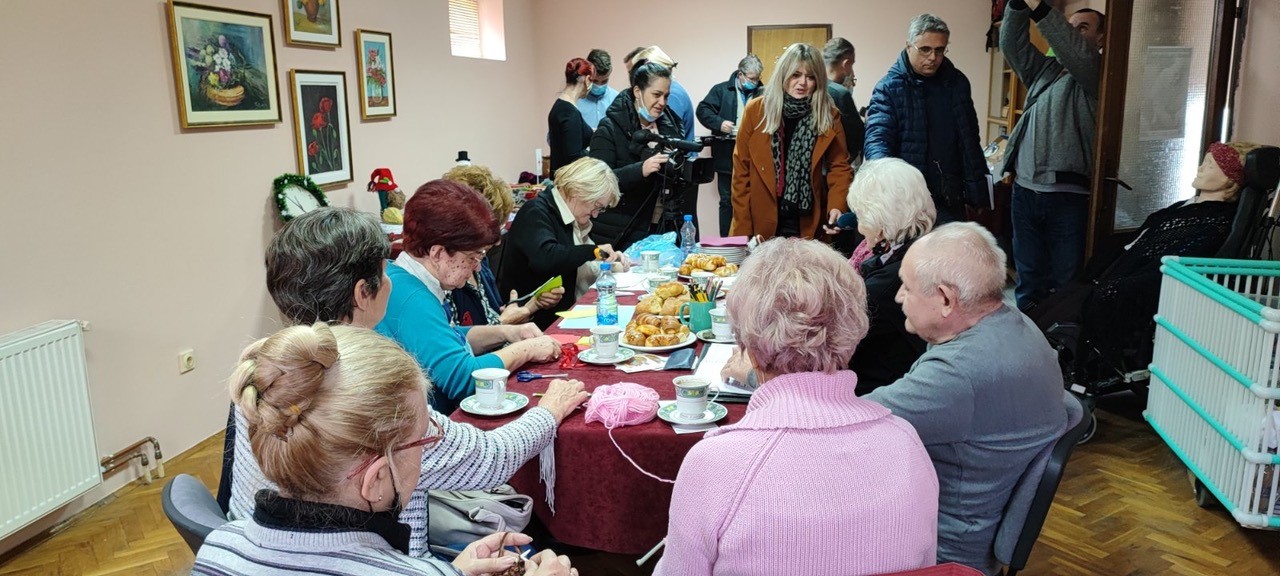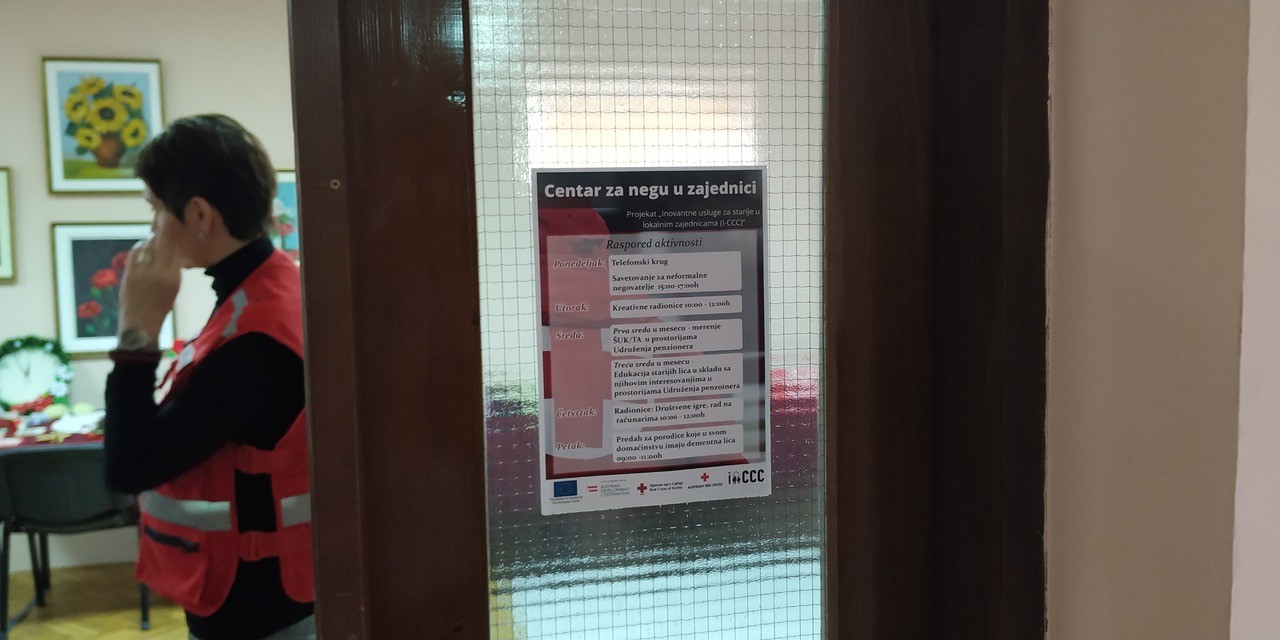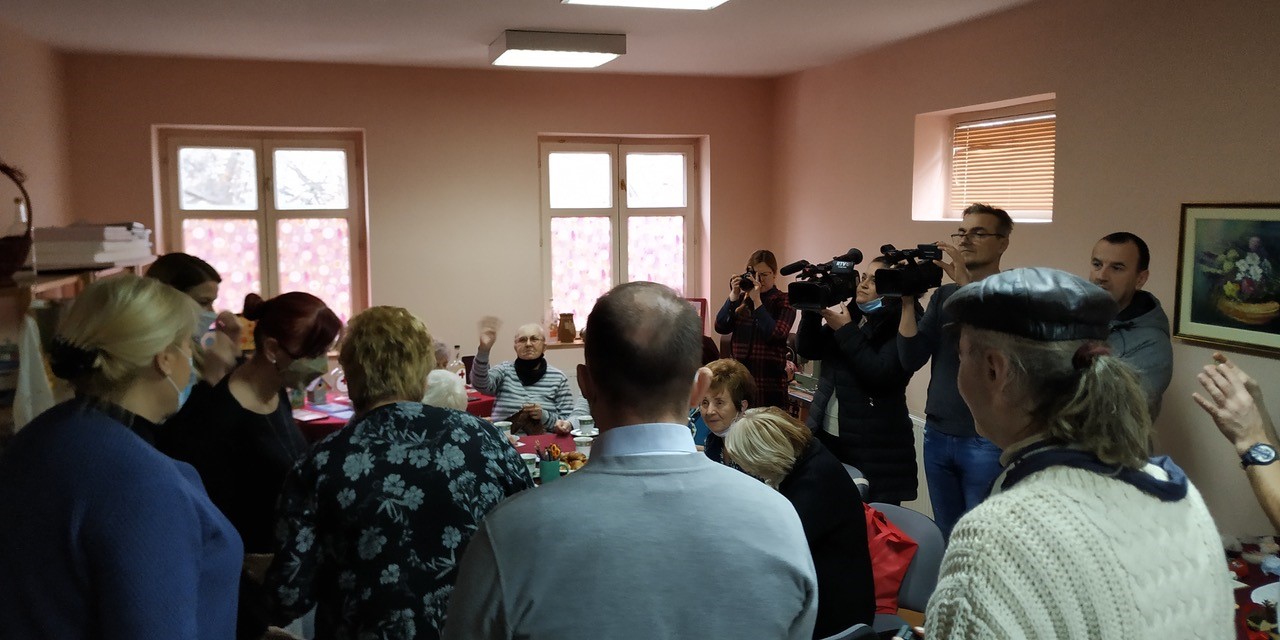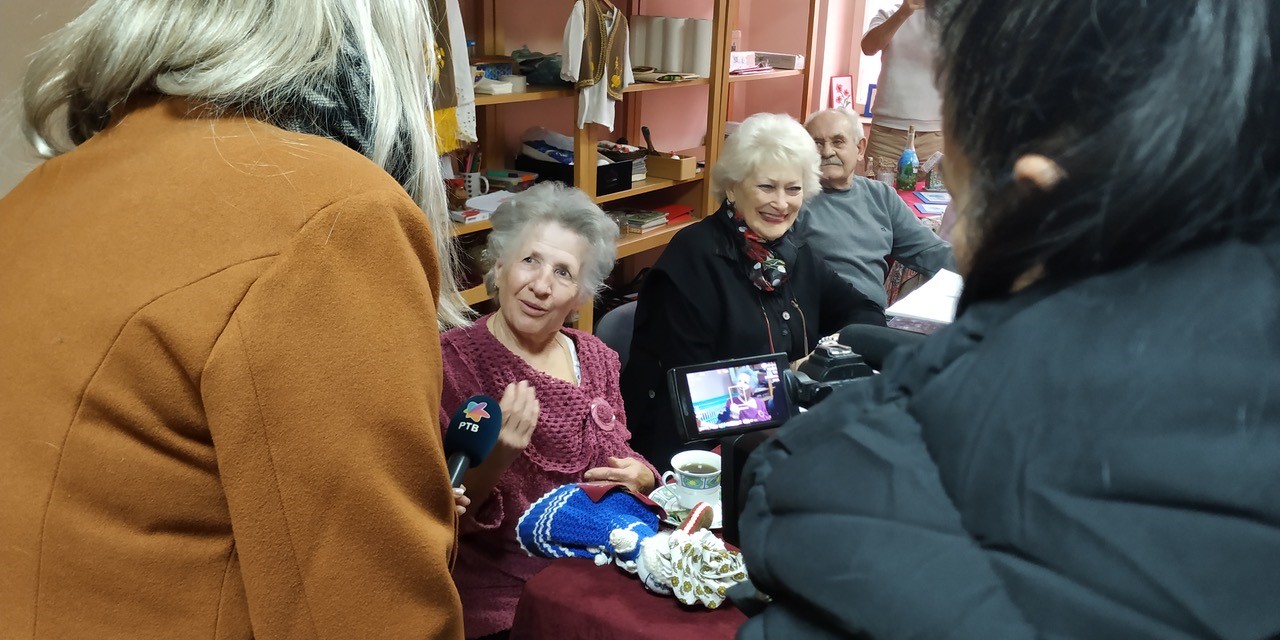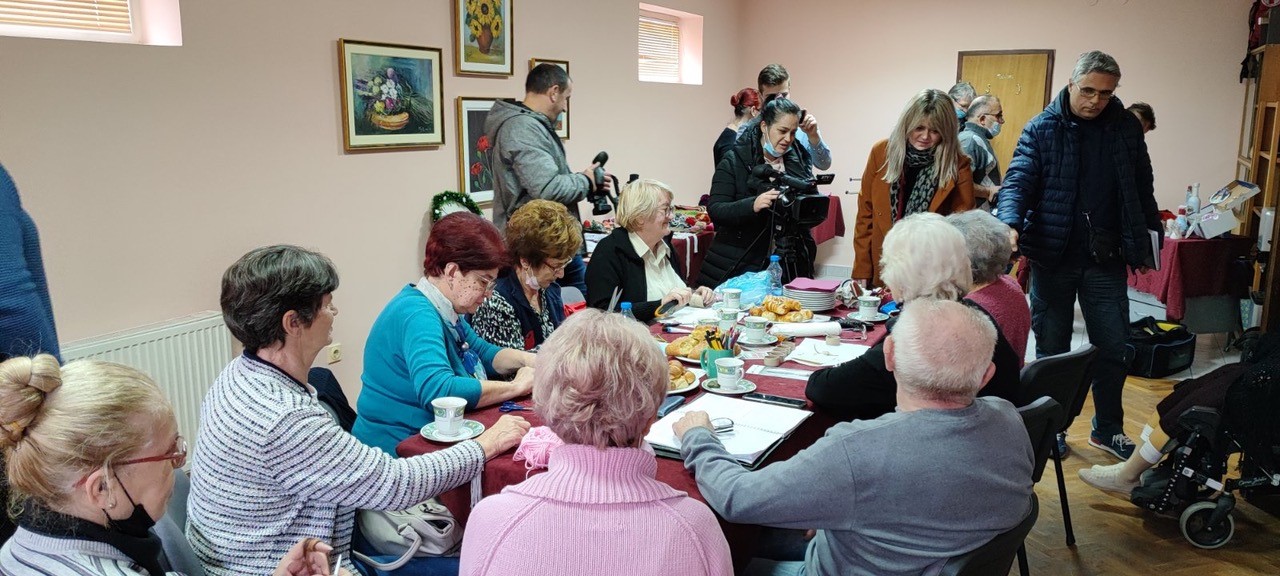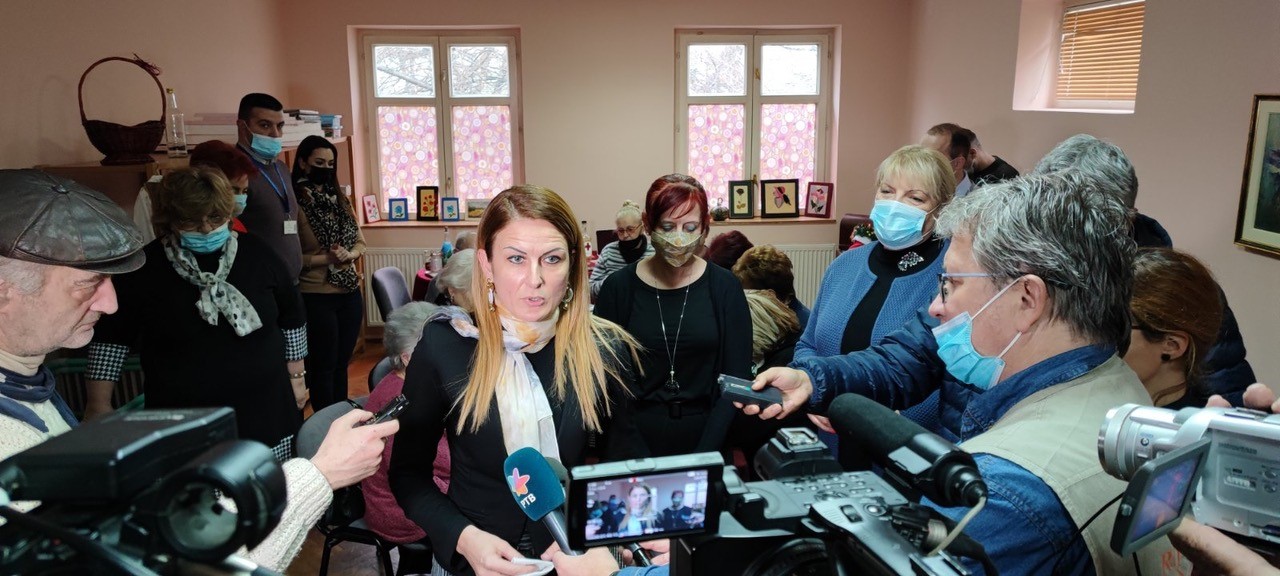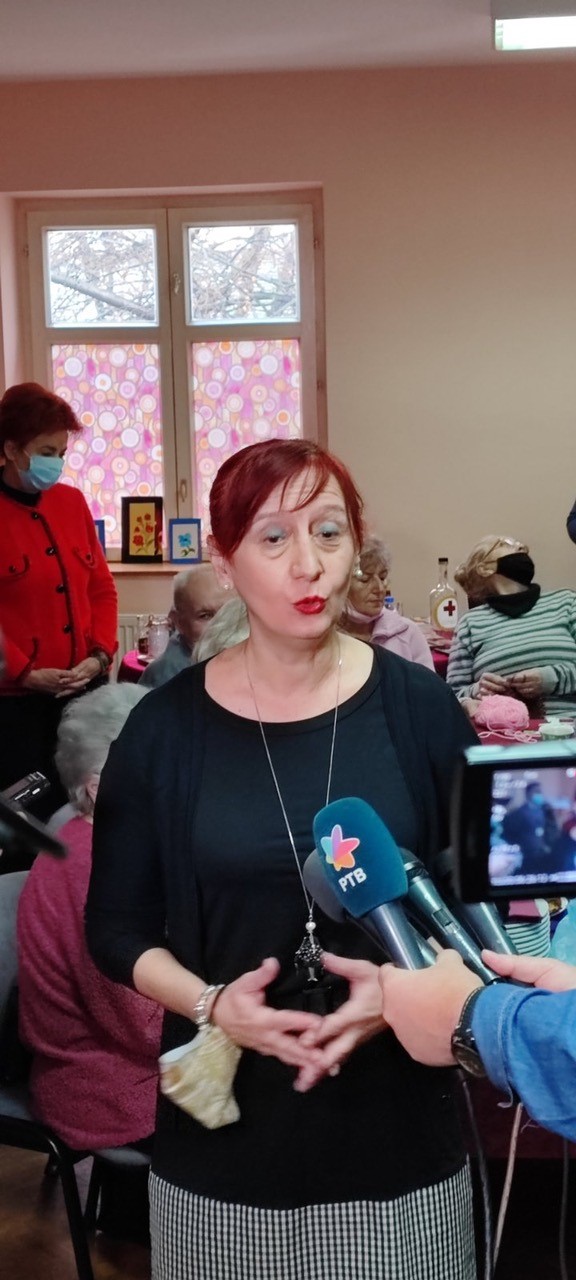- news
- official opening of the community care centre within the project addressing and preventing care needs through innovative community care centres (i-ccc)
Official Opening of the Community Care Centre within the project “Addressing and preventing care needs through innovative community care centres (I-CCC)”
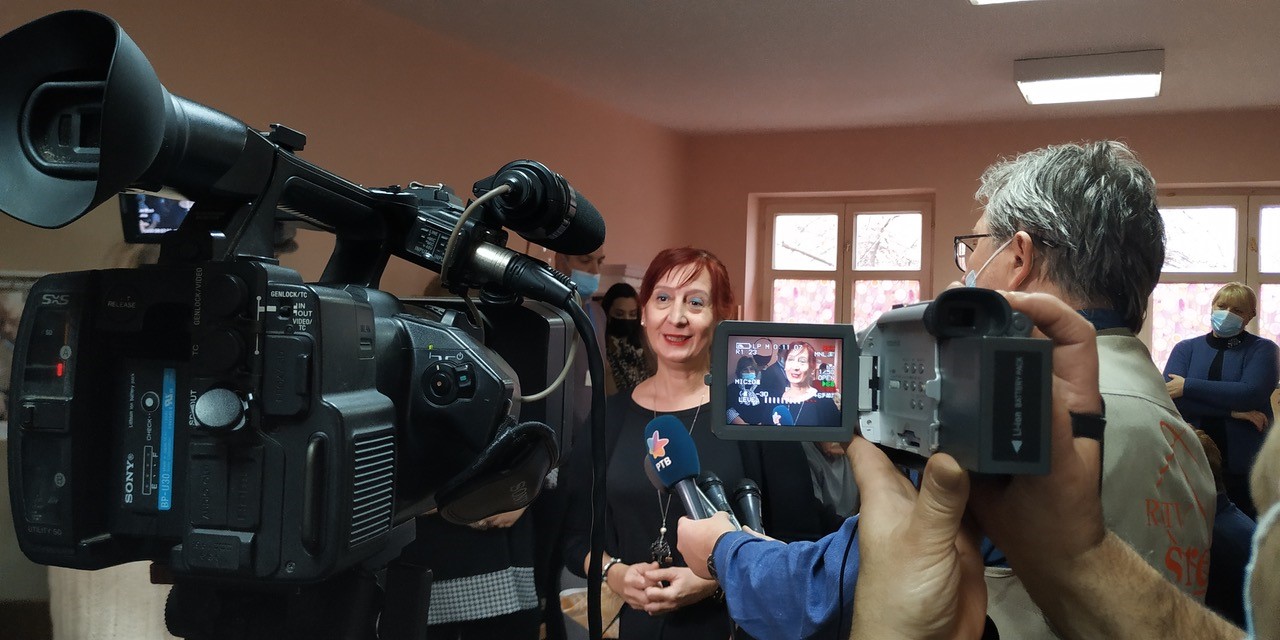
Official opening of the Community Care Centre was organised on December 16, 2021 in Sombor within the project “Addressing and preventing care needs through innovative community care centres (I-CCC)”.
The opening of the Centre is part of the project that the Red Cross of Serbia has been implementing since November 2020 in partnership with the Austrian Red Cross and with the support of the European Union and the Austrian Development Agency.
At the opening ceremony, the space where older persons will spend their time was presented, as well as the activities that will be available to them during their stay at the Centre. The goal of the Centre is to improve the position of older persons in the community, as well as informal caregivers (mostly family members) who will be able to manage their time better due to support from the centre. Special emphasis in all activities planned in this project is on older persons who suffer from dementia, and on informal caregivers who provide care for these people.
Activities provided by the Centre include: education of informal caregivers, education of older persons, crocheting workshops, painting and handicrafts for older persons, library and computer room where the older beneficiaries will be able to learn and develop IT skills.
Speakers at the opening ceremony were: Dušanka Golubović, State Secretary at the Ministry of Labour, Employment, Veteran and Social Affairs, Slavica Milojević, Republic Institute for Social Protection; Natasa Todorovic, expert associate of the Red Cross of Serbia; Ljiljana Tica, Deputy Mayor of Sombor.
Dušanka Golubović pointed out that the Ministry of Labour, Employment, Veteran and Social Affairs continues the policy of deinstitutionalization, which leads to improved response to the needs of the individual within her or his environment. The policy of better assistance to an individual within the community must be based on the development of various services in the community, and the Centre is a good example of such an innovative service in the sense that it will have a positive effect on other local governments.
Natasa Todorovic pointed out that the Centre is one of the project activities that implemented in both Pirot and Sombor. In addition to the Centre, the project introduces new technologies and new approaches to people diagnosed with dementia, but also to families whose members have dementia. Persons with dementia are excluded from the society, and the families of persons with dementia are under great pressure. In the following period, cognitive exercises will be done with older persnos with dementia using tablets, and over time, it will be monitored how such exercises can slow down the development of dementia, concluded Natasa Todorovic.
Ljiljana Tica pointed out that the city has a very good cooperation with the Red Cross of Sombor, but also with other organizations and institutions that work on this theme. In addition to very good cooperation at local level, projects such as “Addressing and preventing care needs through innovative community care centres (I-CCC)” are very significant and it is very important that Sombor is part of such project activities.
According to the World Health Organization for Europe, it is estimated that around 10 million people in Europe currently suffer from dementia, while it is estimated that the number of people with dementia will double by 2030. It is estimated that about 140,000 people in Serbia suffer from dementia. Bearing in mind that this group of people is at high risk of social marginalization, abuse and inadequate care, the services that will be implemented within the project include home visits to persons with dementia, but also providing support through simple activities and preventive measures. One element of this support is cognitive exercises for people diagnosed with dementia in order to slow down the development of the dementia. Trained volunteers will visit older persons with dementia at least once a week and in addition to psychosocial and practical support will have regular cognitive exercises on tablets developed by the Joanneum Research Institute in Austria.
